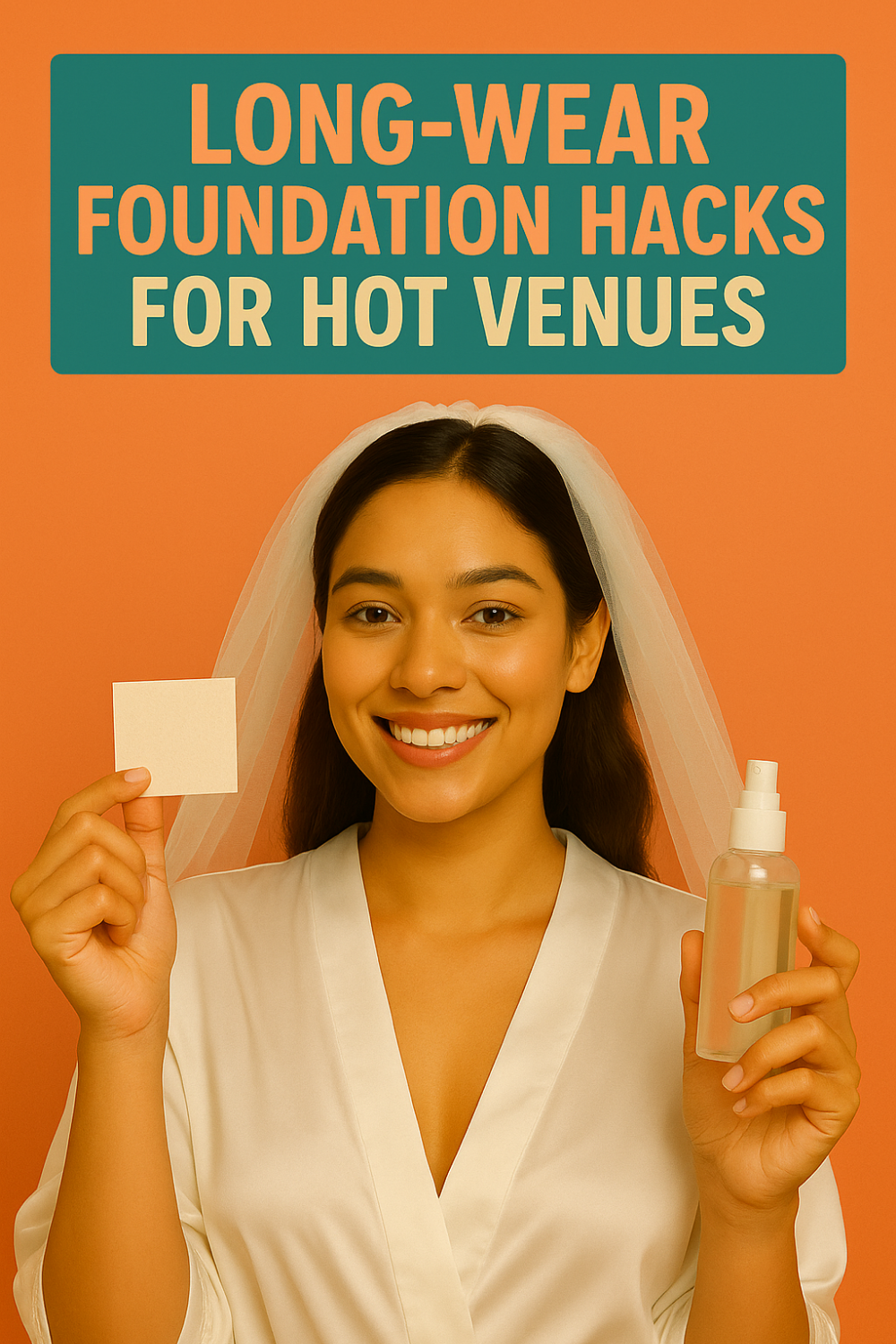Long-Wear Foundation Hacks for Hot Venues clearly guides you in achieving flawless, lasting makeup at warm-weather events. Learn expert techniques to prevent melting, fading, or smudging, so you look effortlessly radiant all day.

- Why heat-proofing your foundation matters
- Selecting the right foundation formula
- Priming techniques for lasting power
- Expert setting methods that beat heat
- Application tips for flawless coverage
- Emergency touch-up essentials
- Ingredients to avoid for hot venues
- Common mistakes that shorten wear-time
Why Heat-Proofing Your Foundation Matters
At hot venues, traditional foundations can easily melt or smudge, affecting your look and confidence. By heat-proofing your makeup routine, you maintain fresh-looking skin all day. Proper techniques ensure your foundation stays put, even in humidity or high temperatures.
Selecting the Right Foundation Formula
Choose a long-wear, matte or oil-free foundation designed for heat resistance. Avoid overly creamy or hydrating formulas, as they tend to break down faster in heat. Instead, opt for lightweight, breathable foundations that promise long-lasting wear and clearly resist sweat and humidity.
Look for foundations labeled:
- Long-wearing (12+ hours)
- Waterproof or water-resistant
- Matte or oil-control
Priming Techniques for Lasting Power
Proper priming is essential. Select a mattifying, oil-controlling primer to create a barrier between skin and foundation. Apply sparingly to the T-zone and areas prone to shine. Allow primer to set for two minutes before applying foundation, ensuring maximum longevity.
Expert Setting Methods That Beat Heat
Setting your foundation properly locks it in place. First, lightly set your makeup with a translucent setting powder, especially focusing on oily areas. Then, finish with a long-lasting setting spray specifically formulated for humidity or heat.
Apply spray using this method:
- Hold bottle 6–8 inches from your face.
- Mist lightly in an “X” and “T” pattern.
- Allow it to dry naturally without touching.
Application Tips for Flawless Coverage
Apply foundation in thin layers to build natural, lasting coverage. Use a damp makeup sponge to press foundation into your skin gently. Avoid thick or heavy layers—this reduces the risk of cakiness and melting. For spot coverage, use a waterproof concealer.
Emergency Touch-Up Essentials
Even with excellent preparation, carry essentials for quick touch-ups:
- Blotting papers for absorbing excess oil
- Pressed translucent powder for quick mattifying
- A mini setting spray for refreshing makeup
Having these handy ensures confidence in hot conditions.
Ingredients to Avoid for Hot Venues
Certain ingredients cause foundation breakdown in heat. Steer clear of products containing excessive oils, silicones (in large quantities), or heavy moisturizers. These can accelerate foundation melting and make your makeup appear patchy and uneven.
Instead, seek out foundations that are:
- Oil-free or water-based
- Silicone-free or minimal silicone
- Specifically labeled as humidity-resistant
Common Mistakes That Shorten Wear-Time
Avoid these common foundation mistakes in heat:
- Skipping primer, which helps lock makeup in place
- Applying too much product, leading to smudging
- Forgetting to set with powder and spray, causing rapid fading
- Neglecting skincare prep, resulting in uneven wear
Being mindful prevents makeup mishaps and ensures lasting wear.
Frequently Asked Questions
What type of foundation works best in hot venues?
Long-wear, oil-free matte foundations designed for humidity perform best in heat.
How can I keep my foundation from melting?
Use mattifying primers, apply thin layers, and finish with setting powder and spray for maximum longevity.
Do setting sprays really help in heat?
Yes, humidity-resistant setting sprays lock foundation in place, preventing smudging and fading.
Is powder or liquid foundation better in heat?
Long-wear liquid foundations combined with powder to set typically perform better in hot venues.
How often should I touch up my foundation?
Minimal touch-ups (every 3–4 hours) using blotting papers or translucent powder help maintain a fresh look.